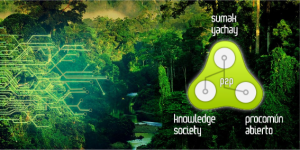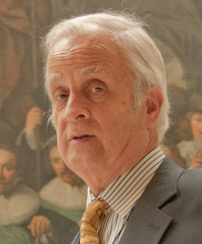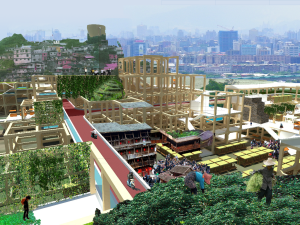
Helene Finidori on FLOK Society and the Commons
Here’s an excellent summary, written by our good friend Helene Finidori from the Commons Abundance Network, on FLOK Society’s historical significance for the Commons and P2P movements. The article was originally published in STIR magazine and Helene has kindly given us permission to republish it here.
This column was published in STIR’s spring issue and is available to buy here
With the Free Libre Open Knowledge (FLOK) Society project, peer-to-peer commons-based economics have a good chance of being institutionalised in Ecuador, or in other words, of entering at a nation-state level through the front door. This would be a world first.

Ecuador may not be particularly advanced as far as urban P2P dynamics are concerned, but its indigenous and rural communities have a long history of sharing knowledge. And since the election of a progressive government in 2007, the country is politically ahead in its determination to continue developing an economy based on the creativity of its citizens and on the sustainable leverage of its internal resources.
The focus here is to transition away from cognitive capitalism where value is commonly extracted via technology transfers through intellectual property rights mostly held by large foreign companies, generating dependencies on the global north and increasing the internal social divide. The goal is to shift towards a ‘social knowledge economy’ where knowledge is freely accessible, produced and shared through co-operative and open processes, and where the resulting knowledge commons can be built upon to accelerate innovation and the distribution of wealth.






